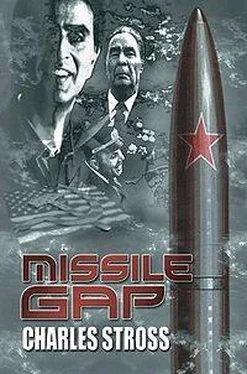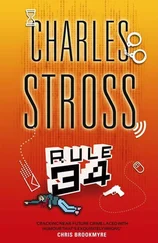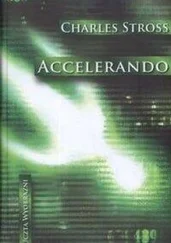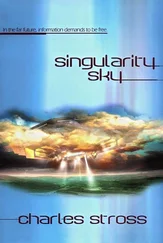"It is certainly a dilemma," Misha agrees amiably, deliberately ignoring the skipper's last comment. "But we can take some time over it. There's nobody out here, at least not within range of yesterday's reconnaissance flight. I'll vouch for Lieutenant Chekhov's soundness: he has a solid attitude, that one."
"I don't see how we can leave without examining the ruins, but we've got limited resources and in any case I don't want to do anything that might get the Academy to slap our wrists. No digging for treasure until the egg-heads get here." Gagarin hums tunelessly for a moment, then slaps his hand on his thigh: "I think we'll shoot some film for the comrade general secretary's birthday party. First we'll secure a perimeter around the beach, give those damned spetsnaz a chance to earn all the vodka they've been drinking. Then you and I, we can take Primary Science Party Two into the nearest ruins with lights and cameras. Make a visual record, leave the double-domes back in Moscow to figure out what we're looking at and whether it's worth coming back later with a bunch of archaeologists. What do you say, Misha?"
"I say that's entirely logical, comrade general," says the political officer, nodding to himself.
"That's so ordered, then. We'll play it safe, though. Just because we haven't seen any active settlement patterns, doesn't mean there're no aborigines lurking in the forest."
"Like that last bunch of lizards." Misha frowns. "Little purple bastards!"
"We'll make good communists out of them eventually," Yuri insists. "A toast! To making good communists out of little purple lizard-bastards with blowpipes who shoot political officers in the arse!"
Gagarin grins wickedly and Gorodin knows when he's being wound up on purpose and summons a twinkle to his eye as he raises his glass: "And to poisons that don't work on human beings."
Chapter Seven: Discography
Warning:
The following briefing film is classified COLLECTION RUBY. If you do not possess both COLLECTION and RUBY clearances, leave the auditorium and report to the screening security officer immediately. Disclosure to unauthorized personnel is a federal offense punishable by a fine of up to ten thousand dollars and/or imprisonment for up to twenty years. You have thirty seconds to clear the auditorium and report to the screening security officer.
Voice-over:
Ocean — the final frontier. For twelve years, since the momentous day when we discovered that we had been removed to this planar world, we have been confronted by the immensity of an ocean that goes on as far as we can see. Confronted also by the prospect of the spread of Communism to uncharted new continents, we have committed ourselves to a strategy of exploration and containment.
Film clip:
An Atlas rocket on the launch pad rises slowly, flames jetting from its tail: it surges past the gantry and disappears into the sky.
Cut to:
A camera mounted in the nose, pointing back along the flank of the rocket. The ground falls behind, blurring into blue distance. Slowly, the sky behind the rocket is turning black: but the land still occupies much of the fisheye view. The first stage engine ring tumbles away, leaving the core engine burning with a pale blue flame: now the outline of the California coastline is recognizable. North America shrinks visibly: eventually another, strange outline swims into view, like a cipher in an alien script. The booster burns out and falls behind, and the tumbling camera catches sunlight glinting off the upper-stage Centaur rocket as its engine ignites, thrusting it higher and faster.
Voice-over:
We cannot escape.
Cut to:
A meteor streaking across the empty blue bowl of the sky; slowing, deploying parachutes.
Voice-over:
In 1962, this rocket would have blasted a two-ton payload all the way into outer space. That was when we lived on a planet that was an oblate sphere. Life on a dinner-plate seems to be different: while the gravitational attraction anywhere on the surface is a constant, we can't get away from it. In fact, anything we fire straight up will come back down again. Not even a nuclear rocket can escape: according to JPL scientist Dan Alderson, escape from a Magellanic disk would require a speed of over one thousand six hundred miles per second. That is because this disk masses many times more than a star — in fact, it has a mass fifty thousand times greater than our own sun.
What stops it collapsing into a sphere? Nobody knows. Physicists speculate that a fifth force that drove the early expansion of the universe — they call it 'quintessence' — has been harnessed by the makers of the disk. But the blunt truth is, nobody knows for sure. Nor do we understand how we came here — how, in the blink of an eye, something beyond our comprehension peeled the earth's continents and oceans like a grape and plated them across this alien disk.
Cut to:
A map. The continents of earth are laid out — Americas at one side, Europe and Asia and Africa to their east. Beyond the Indonesian island chain Australia and New Zealand hang lonely on the edge of an abyss of ocean.
The map pans right: strange new continents swim into view, ragged-edged and huge. A few of them are larger than Asia and Africa combined; most of them are smaller.
Voice-over:
Geopolitics was changed forever by the Move. While the surface topography of our continents was largely preserved, wedges of foreign material were introduced below the Mohorovicik discontinuity — below the crust — and in the deep ocean floor, to act as spacers. The distances between points separated by deep ocean were, of necessity, changed, and not in our geopolitical favor. While the tactical balance of power after the Move was much as it had been before, the great circle flight paths our strategic missiles were designed for — over the polar ice cap and down into the Communist empire — were distorted and stretched, placing the enemy targets outside their range. Meanwhile, although our manned bombers could still reach Moscow with in-flight refueling, the changed map would have forced them to traverse thousands of miles of hostile airspace en route. The Move rendered most of our strategic preparations useless. If the British had been willing to stand firm, we might have prevailed — but in retrospect, what went for us also went for the Soviets, and it is hard to condemn the British for being unwilling to take the full force of the inevitable Soviet bombardment alone.
In retrospect the only reason this was not a complete disaster for us is that the Soviets were caught in the same disarray as ourselves. But the specter of Communism now dominates western Europe: the supposedly independent nations of the European Union are as much in thrall to Moscow as the client states of the Warsaw Pact. Only the on-going British State of Emergency offers us any residual geopolitical traction on the red continent, and in the long term we must anticipate that the British, too, will be driven to reach an accommodation with the Soviet Union.
Cut to:
A silvery delta-winged aircraft in flight. Stub wings, pointed nose, and a shortage of windows proclaim it to be an unmanned drone: a single large engine in its tail thrusts it along, exhaust nozzle glowing cherry-red. Trackless wastes unwind below it as the viewpoint — a chase plane — carefully climbs over the drone to capture a clear view of the upper fuselage.
Voice-over:
The disk is vast — so huge that it defies sanity. Some estimates give it the surface area of more than a billion earths. Exploration by conventional means is futile: hence the deployment of the NP-101 Persephone drone, here seen making a proving flight over land mass F-42. The NP-101 is a reconnaissance derivative of the nuclear-powered D-SLAM Pluto missile that forms the backbone of our post-Move deterrent force. It is slower than a strategic D-SLAM, but much more reliable: while D-SLAM is designed for a quick, fiery dash into Soviet territory, the NP-101 is designed to fly long duration missions that map entire continents. On a typical deployment the NP-101 flies outward at thrice the speed of sound for nearly a month: traveling fifty thousand miles a day, it penetrates a million miles into the unknown before it turns and flies homeward. Its huge mapping cameras record two images every thousand seconds, and its sophisticated digital computer records a variety of data from its sensor suite, allowing us to build up a picture of parts of the disk that our ships would take years or decades to reach. With resolution down to the level of a single nautical mile, the NP-101 program has been a resounding success, allowing us to map whole new worlds that it would take us years to visit in person.
Читать дальше












